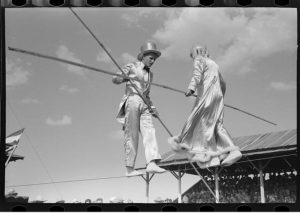 When writing for this blog I have often spoken about the distinctions between political and managerial competence. Successful leadership is the careful merging of both competencies to execute initiatives. For a historical example of this merging of ideas, let’s turn to Iran and Turkey at the conclusion of World War I.
When writing for this blog I have often spoken about the distinctions between political and managerial competence. Successful leadership is the careful merging of both competencies to execute initiatives. For a historical example of this merging of ideas, let’s turn to Iran and Turkey at the conclusion of World War I.
In the early twentieth century, Turkey and Iran followed relatively similar political trajectories towards modernization. As students of leadership we must ask ourselves why the former proved itself to be arguably the most successful experiment with secularism in a Muslim country to date, while the latter ended up with a theocratic state. I will briefly look at several fundamental organizational styles implemented by Ataturk and Reza Shah.
The pivotal cause for the divergent paths of authoritarian modernization in the two countries is that Atatürk’s regime was dictatorial, whereas the Shah’s ruling methods were more “despotic”. This distinction seems purely academic but it leads to an important conclusion regarding respective societal trajectories. Regardless of whether or not Atatürk effectively removed the army from political involvement, the public certainly “bought” his reforms. In conjunction with these efforts, the Turkish regime worked hard to provide itself with a solid civilian base.
In contrast Reza Shah maintained many features typical to military rule. He not only cultivated an autocratic heir through aggressive personal land grabs, but he promoted his military cronies to high positions of state authority.
We must also look at how each political figure formed political parties in their respective country. Atatürk’s People’s Party in Turkey mediated the institutionalization of the republican regime. Having imitated the Turkish equivalent, Iranian experiments to build a ruling national political party did not last long. As a consequence, Atatürk channeled the support of the intelligentsia into the People’s Party, whereas Reza Shah’s administration remained a personal fief.
From these examples of success and failure comes an important principle: effective pragmatic leadership is a combination of getting people on your side, sustaining momentum, and keeping them on your side. You need political competence to generate initial interest and support for your nascent ideas. In order to build upon the gains derived from your political competence you need managerial competence to keep people engaged and to deliver the only thing that really matter: results.
Bobak Moazami currently studies history & economics at Columbia University. You can contact him at: bm2457@columbia.edu
photo: rreichle



